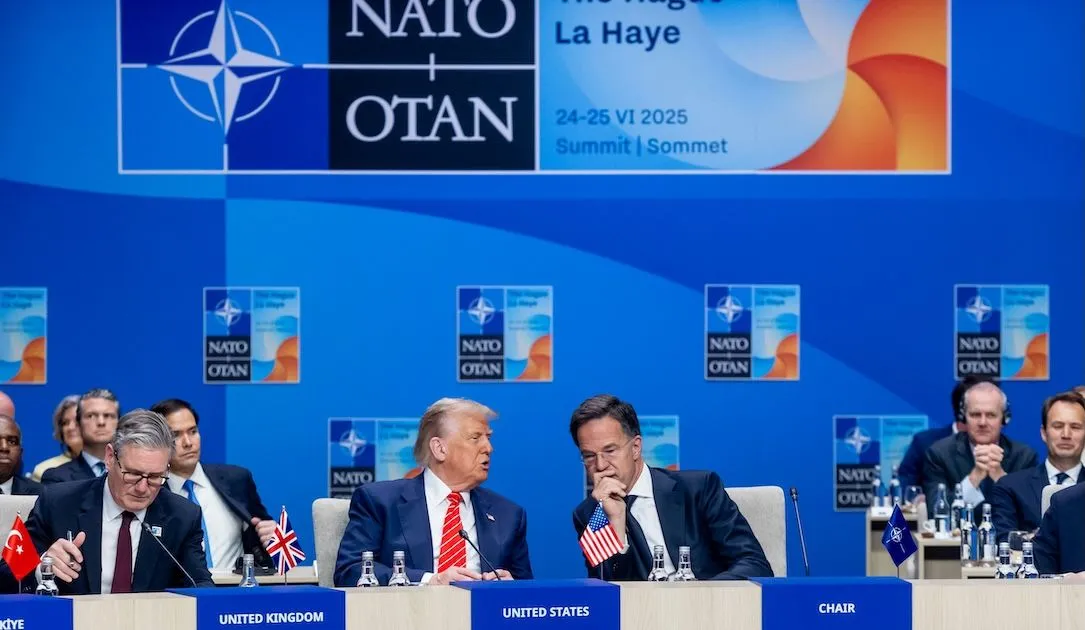
NATO allies reached an agreement this week to extend their protection spending to five% of GDP inside a decade, with 3.5% to go towards core protection and the remaining 1.5% of GDP on oblique protection spending, together with cybersecurity capabilities.
The expanded vary of what quantities to protection spending — now together with investments in power and provide chain resilience, logistics infrastructure and innovation — relates instantly to strategic considerations highlighted by Russia’s full-blown invasion of Ukraine and in addition to the systemic challenges posed by what NATO describes as China’s “acknowledged ambitions and coercive insurance policies.”
Funding in defenses in opposition to cyberattacks comes as specialists warn that even incidents under the brink of beginning an armed battle are having “strategically consequential results” on NATO allies, and as NATO itself agreed to launch an integrated cyberdefense center at its navy headquarters in Mons, Belgium.
Most of NATO’s 25 members currently spend less than 3.5% of GDP on protection.
Opening this week’s summit in The Hague, NATO Secretary Basic Mark Rutte mentioned: “Safety can not be considered simply as the standard realms of air, sea and land, but additionally of expertise, of cyber, of the power of our democratic society.”
Some cyber spending is predicted to fall underneath the core 3.5% dedication, as per the standardized definition of navy spending utilized by NATO, and can embody budgets for navy cyber instructions and protections for operational navy networks which are lined underneath nationwide protection budgets.
There isn’t a standardized definition of the related civilian investments to be counted inside the 1.5% part. Whereas these are anticipated to incorporate efforts to guard crucial nationwide infrastructure and logistics hubs, considerations have been raised that the shortage of standardization might encourage inventive accounting amongst some allies.
German assume tank Bertelsmann Stiftung warned that the 1.5% part of protection spending “stays conceptually broad, functionally imprecise, and open to nationwide interpretation.”
‘Daddy’ Trump
The declaration launched on Wednesday was notably the shortest issued on the conclusion of any of NATO’s annual summits, one thing the European Coverage Centre suggested indicated a want to keep away from controversy amongst European allies and with the US.
The headline spending enhance to five% has been seen as a response to many years of criticism from the U.S. concerning the disproportionate burden it carries for protection in Europe — some extent closely pressured by President Donald Trump.
Rutte notably praised Trump whereas speaking to the media in the course of the convention, crediting him for allies’ dedication to extend protection spending and joking that “daddy has to typically use sturdy language” after the U.S. president had just lately swore whereas speaking concerning the Israel-Iran battle.
As of NATO’s official estimates for 2024, the US accounted for 66% of the alliance’s whole protection spending, regardless of representing solely 55% of the alliance’s mixed GDP.
Complaints about European frugality date again to the alliance’s founding within the Fifties and have since been repeated by U.S. administrations on each side of the political spectrum, together with these of Harry Truman, Jimmy Carter, Ronald Reagan and Barack Obama.
These complaints have been dramatically elevated by Trump, who in a bombastic assertion in the course of the 2024 election marketing campaign warned that the U.S. wouldn’t solely not shield “delinquent” allies from Russian aggression, however that he would “encourage them [Russia] to do no matter they need. You gotta pay.”
Regardless of criticisms of this assertion — and fears over Trump’s dedication to the alliance — there is no such thing as a indication that the US has inspired Russia to assault any of the eight members who nonetheless don’t meet NATO’s earlier 2% spending goal, together with Canada, Italy and Spain.
Regardless of the declaration, Spain’s Prime Minister Pedro Sanchez has argued that the nation will keep away from assembly the spending goal of 5% of GDP. Trump criticized Spain’s choice, however informed journalists he stood by NATO’s Article 5 protection dedication that an assault in opposition to one ally can be handled as an assault in opposition to all of them: “I stand with it. That’s why I’m right here. If I didn’t stand with it, I wouldn’t be right here.”
Recorded Future
Intelligence Cloud.






